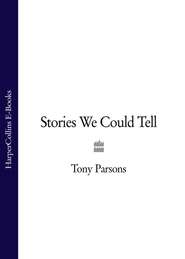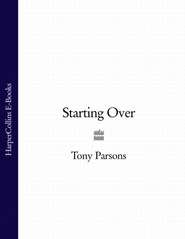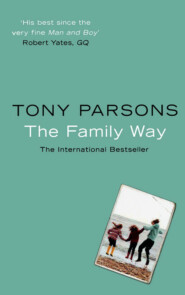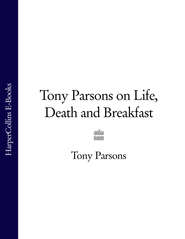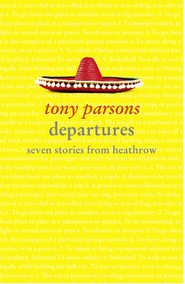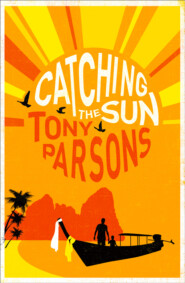По всем вопросам обращайтесь на: info@litportal.ru
(©) 2003-2024.
✖
The Complete Man and Boy Trilogy: Man and Boy, Man and Wife, Men From the Boys
Автор
Год написания книги
2018
Настройки чтения
Размер шрифта
Высота строк
Поля
I wanted a marriage that would last forever because that’s what my parents had. Gina wanted a marriage that would last forever because that was exactly what her parents had never had.
‘That’s what is so good about us,’ Gina told me, ‘our dreams match.’
Gina was mad about my parents and the feeling was mutual. They looked at this blonde vision coming up the garden path with their little grandson, and the pair of them seemed to visibly swell with pleasure, smiling shyly behind their reading glasses and geraniums.
None of them could believe their luck. My parents thought they were getting Grace Kelly. Gina thought she was getting the Waltons.
‘I’m going to take Pat to see your mum and dad,’ she said before I went to work. ‘Can I borrow your mobile phone? The battery’s flat on mine.’
I was happy to lend it to her. I can’t stand those things. They make me feel trapped.
A shiver of panic ran through the gallery.
‘The fly’s back!’ the director said. ‘We got the fly!’
There it was on the monitor. The studio fly.
Our fly was a huge beetle-black creature with wings as big as a wasp’s and a carcass so bloated that it seemed to have an undercarriage. On a close-up of Marty reading his autocue, we watched the fly lazily circle our presenter’s head and then bank off into a long slow climb.
The fly lived somewhere in the dark upper reaches of the studio, up there among the tangle of sockets, cables and lights. The fly only ever put in an appearance during a show, and up in the gallery the old-timers said that it was responding to the heat of the studio lights. But I always thought that the fly was attracted to whatever juice it is that human glands secrete when they are on live television. Our studio fly had a taste for fear.
Apart from the fly’s aerial display, Marty’s interview with Cliff was going well. The young green started off nervously, scratching his stubble, tugging his filthy dreadlocks, stuttering his way through rambling sentences and even committing television’s cardinal sin of staring directly into the camera. But Marty could be surprisingly gentle with nervous guests and, clearly sympathetic to Cliff’s cause, he eventually made the young man relax. It was only when Marty was winding up the interview that it all began to go wrong.
‘I want to thank Cliff for coming in tonight,’ Marty said, unusually solemn, brushing away the studio fly. ‘And I want to thank all his colleagues who are living in trees out at the airport. Because the battle they are fighting is for all of us.’
As the applause swelled, Marty reached out and shook his guest’s hand. Cliff held it. And continued to hold it. Then he reached inside the grubby, vaguely ethnic coat he was wearing and produced a pair of handcuffs. While Marty watched with an uncertain smile, Cliff snapped one metal ring around his own wrist and the other around Marty’s.
‘Free the birds,’ Cliff said quietly. He cleared his throat.
‘What – what is this?’ Marty asked.
‘Free the birds!’ Cliff shouted with growing confidence. ‘Free the birds!’
Marty shook his head. ‘Do you have the key for this thing, you smelly little shit?’
Up in the gloaming of the gallery we watched the scene unfold on the bank of screens shining in the darkness. The director carried on choreographing the five cameras – ‘Stay on Marty, two…give me a close-up of the handcuffs, four…’ – but I had the feeling that you only get when live television is going very wrong, a feeling which somehow combines low-grade nausea, paralysis and terrible fascination, as it sits there in the pit of your stomach.
And suddenly there was the fly, hovering for a few seconds by Cliff’s hair, then executing a perfect landing on the bridge of his nose.
‘Free the birds!’
Marty considered his arm, unable to quite believe that he was really chained to this scruffy young man whose make-up was starting to melt under the lights. Then he picked up the water jug that was on the table between them and, almost as if he were trying to swat the studio fly, smashed it into Cliff’s face. There was an eruption of blood and water. Marty was left holding just the jug’s broken handle.
‘Fuck the birds,’ he said. ‘And bugger the hole in the ozone layer.’
A floor manager appeared on camera, his mouth open with wonder, his headphones dangling around his neck.
Cliff cradled his crushed nose. Someone in the audience started booing. And that’s when I knew we were stuffed. Marty had done the one thing he wasn’t allowed to do on our kind of show. He had lost the audience.
Up in the gallery the telephones all began to ring at once, as if to commemorate my brilliant career going straight down the toilet. Suddenly I was aware of how hard I was sweating.
The studio fly appeared briefly on all the monitors, seemed to perform a victory roll, and then was gone.
‘I’m so stupid,’ Siobhan said hours later in the deserted gallery. ‘It’s all my fault. I should never have booked him. I should have guessed he wanted to use us to do something like this. He always was a selfish little bastard. Why did I do it? Because I was trying to impress everyone. And now look what’s happened.’
‘You’re not stupid,’ I told her. ‘Marty was stupid. It was a good booking. Despite what happened, it’s still a good booking.’
‘But what’s going to happen now?’ she asked, suddenly seeming very young. ‘What will they do to us?’
I shook my head and shrugged. ‘We’ll soon find out.’ I was tired of thinking about it. ‘Come on, let’s get out of here.’
I had sent Marty home, smuggled out of the back of the building into a minicab which was waiting by the freight entrance, telling him to talk to no one. The press would tear him to pieces. We could count on that. I was more worried about what the station would do to him. And us. I knew they needed The Marty Mann Show. But did they need it this badly?
‘It’s so late,’ Siobhan said, as we got into the lift. ‘Where can I get a cab?’
‘Where do you live?’ I asked.
I should have guessed that she would say Camden Town. She just had to be living in one of those old working-class neighbourhoods that had been colonised by the people in black. Actually, she was not that far from our little house by Highbury Corner. We were at opposite ends of the same road. But Siobhan was at the end of the Camden Road where they aspired to Bohemia. I was at the end where they dreamed of suburbia.
‘I can give you a lift,’ I said.
‘What – in your MGF?’
‘Sure.’
‘Great!’
We laughed for the first time in hours – although I couldn’t quite work out why – and took the lift down to the underground carpark where the little red car was standing completely alone. It was late. Almost two. I watched her slide her legs under the dashboard.
‘I’m not going to go on about it,’ she said, ‘but I just want to say you’ve been really sweet about tonight. Thank you for not being angry with me. I appreciate it.’
It was a gracious apology for something that she really didn’t have to apologise for. I looked at her pale Irish face, realising for the first time how much I liked her.
‘Don’t be silly,’ I said, quickly turning on the ignition to cover my embarrassment. ‘We’re on the same side, aren’t we?’
It was a warm summer night and the city streets were as close to empty as they were ever going to get. Within twenty minutes we were driving past the shuttered flea market, the funky ethnic restaurants and all the second-hand stores with their grotesquely oversized signs – there were giant cowboy boots, colossal rattan chairs and monster slabs of vinyl, all of them looming above the street like the visions caused by some bad drug. Gina and I used to shop around here on Saturday afternoons. It was years ago now.
Siobhan gave me directions until we pulled up in front of a large white town house that had long ago been converted into flats.
‘Well,’ I said, ‘goodnight then.’
‘Thanks,’ she said, ‘for everything.’
‘You’re welcome.’
‘Listen, I don’t think I can sleep yet. Not after tonight. Do you want to come in for a drink?’
‘A drink might keep me awake,’ I said, hating myself for sounding like a pensioner who had to scurry back to the cocoa and incontinence sheets of his sheltered accommodation.






